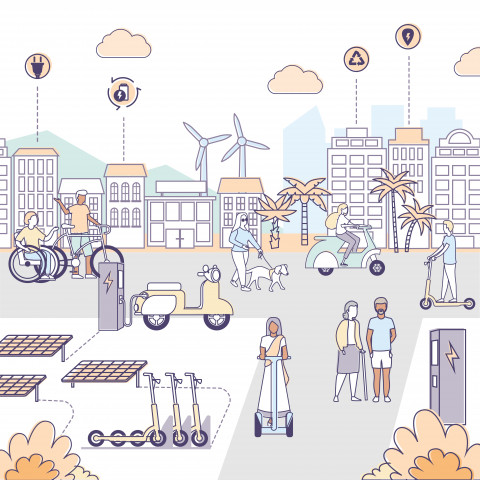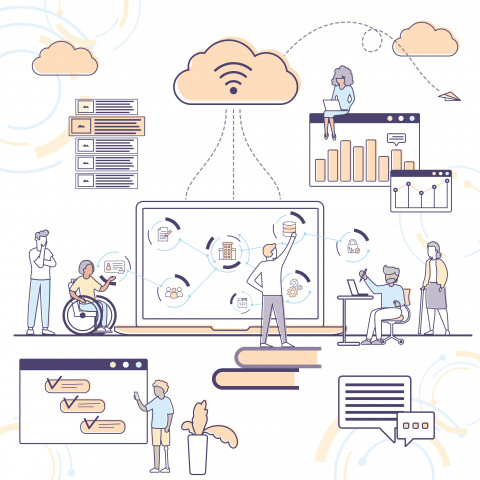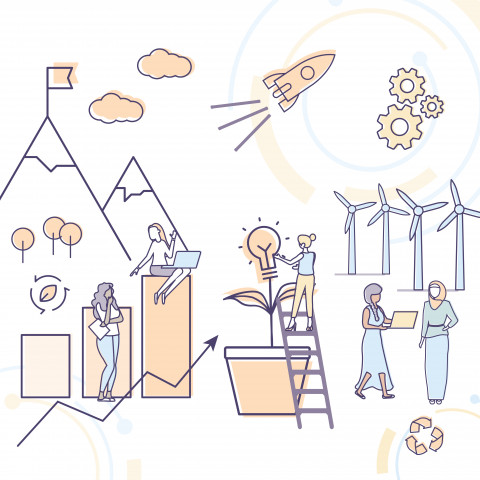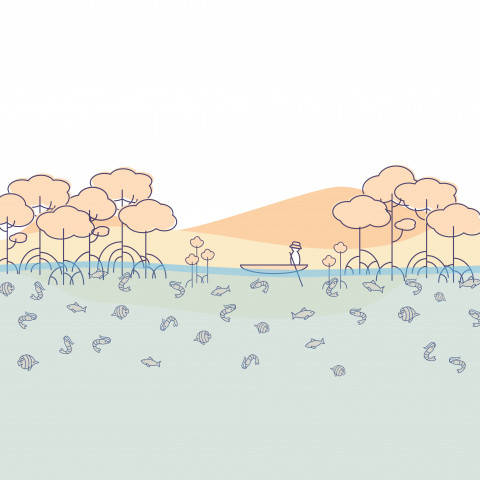#DecentralisedDevelopmentLab
Welcome to the Decentralised Development Lab!
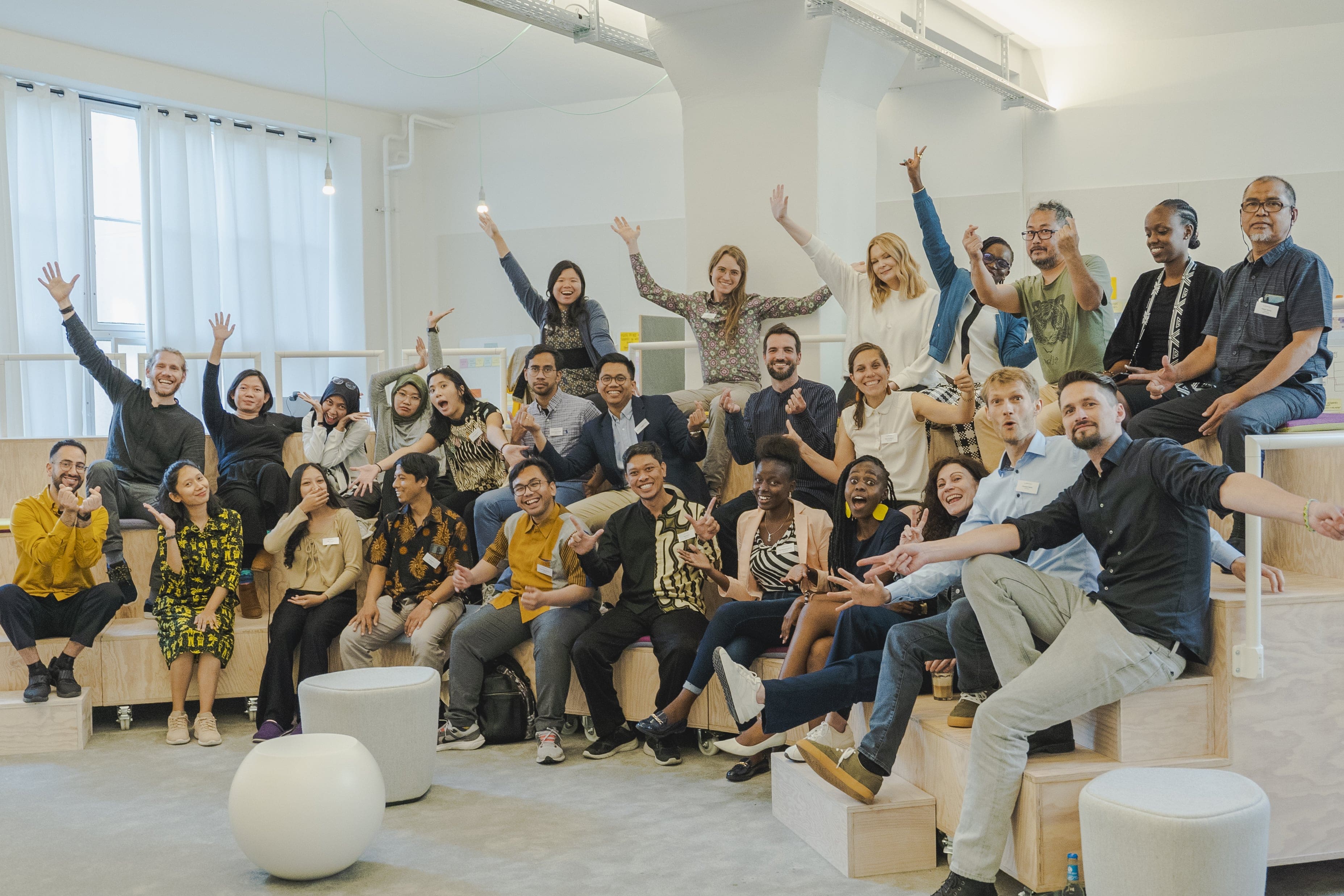
The Decentralised Development Lab was implemented by the German Government and Federal States Programme in its second phase (2019-2023) on behalf of the Federal Ministry for Economic Cooperation and Development (BMZ). It was implemented in collaboration with minds&makers GmbH and enpact e.V.
A description of the whole DDLab together with our learnings is available in our brochure (only in German): DDLab-Abschlussbroschüre-Layout-final-digital-260623.pdf (bund-laender-programm.de)
Central question: How can actors from decentralised levels of state - such as cities, districts and regions - join forces and create synergies across countries to find innovative solutions to sustainable development challenges?
- The Decentralised Development Lab was created to address this question with the following activities:
- Formulate four common challenges between German federal states and decentralised actors from partner countries
- Teams from different federal states and their partner countries receive coaching, training, expert exchange, and financial support in the form of a incubation and acceleration programme to develop solutions and maximize social impact for four specific challenges
Overview of the process: The Decentralised Development Lab started in the beginning of 2021 with a Call for Challenges that was spread across the world. The DDLab team received more than 25 challenges that were handed in from federal states, research institutions, NGOs or governmental institutions from partner countries. Together with the BMZ the DDLab team selected four challenges. These challenges were refined together with the so called "Challenge Owners" to formulate a concise challenge question and develop a challenge description. All of this happened within an agile development process. The four developed challenges surrounded the topics sustainable e-mobility, inclusive digitalisation, female entrepreneurship and mangrove friendly aquaculture (you can learn more about the challenges below). In November 2021, the second phase of the DDLab started with the launch of the Call for Ideas. During this call, we were looking for teams of creative individuals and from diverse backgrounds to develop solutions to the four challenges (you can learn more about the Call for Ideas below). We received more than 180 ideas from all over the world! With a transparent selection process, we shortlisted 19 teams and conducted interviews with them to assess their ideas in more depth. In the end, four teams were selected which started with a five-month incubator program. During this phase of the DDLab, the four selected teams received financial benefits, coaching sessions, technical expertise and the opportunity to test and validate their solutions. All the teams gathered in Berlin for a Midterm workshop to meet stakeholders and have a short design sprint.
Have a look at their Midterm Workshop experiences here: A look into the Decentralised Development Lab Experience - YouTube
In the end of July 2022, the four teams handed in detailed project proposals which were further evaluated by a jury as well as GIZ technical and regional experts and their coaches. On the 29th of August, they had the chance to pitch their ideas to the jury and a broader audience.
Since two of the teams had the same scorings, we decided together with the BMZ to have two winning teams that will share the financial benefit and access to an acceleration programme.
Between September 2022 and March 2023 the two winning teams (TRANSISI, working on the e-mobility challenge and Becoming Nala working on the female entrepreneurship challenge) were in the seven-month acceleration phase. During this time, they had continued access to coaching and trainings as well as three in person workshops in Berlin, Jakarta and Kigali. Additionally, they received each financial support to contract service providers to start the piloting of their solution.
At the end of the accelerator in March 2023, the two teams came together with GIZ and enpact in Kigali, Rwanda for the Wrap Up Workshop of the DDLab. There, Becoming Nala launched their platform to the broader public during an event at GIZ's Digital Transformation Center in Kigali where different Rwandan ministries, GIZ projects and the German embassy were present. Additionally, TRANSISI had the chance to exchange with a leading start-up from Rwanda's e-mobility sector about strategies to incorporate their businesses in existing governmental investments. The workshop offered the chance for both teams to prepare themselves for the steps after the end of the DDLab.
Have a look at the Wrap Up Workshop here: Decentralized Development Lab | A model for global collaboration towards sustainable development - YouTube
Both teams could develop convincing Minimum Viable Products (MVP) and are ready to enter the market. TRANSISI developed a digital dashboard for providers of charging infrastructure and are also advising the Indonesian government on their e-mobility strategy. Becoming Nala developed a virtual matching platform for Rwandan entrepreneurs from rural areas and the city to connect them with funding opportunities, mentors from all around the world and capacity building opportunities.
Find out more about the two teams here: Becoming Nala and TRANSISI
You can learn more about the Decentralised Development Lab and its call for ideas here: Decentralised Development Lab - YouTube
Overview of the process
The four challenges in the Decentralised Development Lab
You can find further details about the challenges by hovering over the images and clicking on the respective link below
Who were the Challenge Owners behind the Challenges?
Below you can find more information about the challenge owners of the four different challenges.
Challenge Question: How might we attract (public and private) investments into e-bus infrastructure and vehicles?
Challenge Owner:
Challenge Question: How might we make active citizen participation inclusive for silent groups by involving them in the development of suitable solutions like One-Stop Shops?
Challenge Owner:
Challenge Question: How might we untap the potential of female entrepreneurship for the green and digital future of rural regions?
Challenge Owner:
Challenge Question: How might aquaculture become mangrove-friendly, and how might smallholder get involved in the development?
Challenge Owner:
What happened in the accelerator?
Incubator Program - Who were the teams and what were their ideas?
After a thorough selection process, we selected four teams and their ideas who went through an incubation program to further develop their idea. You can learn more about their ideas below.
The Becoming Nala Project: The idea behind Becoming Nala is to connect women in rural areas of Rwanda with an idea or running a small business with existing mentoring opportunities, webinars, acceleration projects and funding - on a digital platform mobile application. We make it easy for them to find and get matched with local/regional national opportunities as well as global opportunities that fit to their needs. The platform offers a learning database / online education with step-by-step guides in local language. An online capacity building specially focused on rural female entrepreneurs needs. High quality webinars will be transcribes / translated in local language - and new ones filmed and upload with local role models. We have an on-site team that supports women in uploading their profiles and using the simple and intuitive platform. In creating this online platform tailored to the women's' needs - we already push their self-esteem as they see that their work and ideas are valued and supported. Through local offline hubs women can also directly exchange their experiences, fears and needs.
TRANSISI is a tech-based startup in the e-mobility and renewable energy sector, specializing in electric vehicles and their charging infrastructure. TRANSISI develops and provides Charging-as-a-Service (CaaS), such that bus operators no longer need to invest in high CAPEX for charging infrastructures nor have extensive technical knowledge of it. Additional values that TRANSISI gives bus operators as beneficiaries are consulting services and digitalized invoicing & monitoring.
It is estimated that TRANSISI brings a reduction of 8.4% TCO of charging infrastructure assets while giving technical services through consultancy and operational to bus operators. Besides, TRANSISI will accelerate the smooth transition of e-buses in Jakarta, potentially reducing carbon emissions by 79.31% in 2025.
"Towards a Sustainable Mobility" is TRANSISI's vision and tagline. The TRANSISI Team comprises engineers and specialists in the sustainable energy, electrical power system, e-mobility, and economy sector - all Master graduated from top universities in Europe.
The team works on the following goals within the project:
1. Develop a Lembar Selatan Village Mangrove Ambassador Program for Reducing World Carbon Emissions
2. Development of mangrove friendly aquaculture activities such as the cultivation of mangrove crab, vaname shrimp and milkfish pond, as a source of income for coastal communities
3. Strengthening of management and institutions, as well as integration of mangrove conservation program with eco-friendly tourism as the main part of the Lembar Selatan Ecotourism (ELS) destination
4. Integration of the existing tidal floods and tsunami early warning system with the online disaster mitigation platform, including the development of IoT platforms for disaster education and mitigation, as well as real-time information services via smartphones for the surrounding community to build disaster preparedness effort. This initiative will be developed in collaboration with the regional disaster management agency and the social service institution at district level
BA11y is a platform where organisations and People with Disabilities (PwDs) can work together to discover accessibility issues in their digital assets such as websites, documents and applications. It invites active participation for silent groups, in this case, PwD-mainly blind and low vision users, to contribute by submitting reviews so that related stakeholders can get awareness directly from the beneficiaries (affected users). PwD become not only the end-users but also the collaborators. This enables organisations to take actions to improve the accessibility of their digital assets to cater for their PwD users.
In general, BA11y is an issue tracker tailored specifically for accessibility issues. There are two ways PwD and non-PwD users submit their accessibility issues: by submitting the issue manually in detail with description and screenshots and by submitting the URL of their website or URL of the applications. BA11y automated tools will scan accessibility issues based on WCAG as well as mobile platform accessibility standards and create a draft report. Both reports will be posted on the platform and everybody who has access to the platform can verify or comment on the issue.
Overview of the incubator program
Timeline of the incubator program:
Methods used:
CALL FOR Ideas - November 15th 2021 to January 9th 2022 (Closed)
The objective of the #DecentralisedDevelopmentLab's Call for Ideas was to select the best 4 Solution Providing Teams that would address the 4 published Challenges with the support of an Incubator Programme.
In this phase we turn to you as international and regional experts and public servants, start-ups and creative minds to find innovative ideas to four predefined challenges. We foster exchange, so that idea providers whose expertise potentially complements each other can form interdisciplinary, diverse and effective teams for the challenges. By means of co-creative idea development formats, agile coaches support you in placing, formulating and, if necessary, further developing your idea.
Based on a jointly developed set of criteria, a winning idea will be selected for each challenge, and their teams will enter the incubation phase of the Decentralised Development Lab.
We are looking for individuals and gender-diverse teams with various backgrounds and experiences who can contribute their expertise and creative energy to one of the four challenges. At this early stage, it is more important that we create strong teams than having your ideas fully elaborated yet.
👉 Social and public innovators, social entrepreneurs, innovative start-ups and socially oriented small and micro enterprises
👉 Experts for topics that are related to the challenges: Researchers & PhDs, research institutions and associations, universities and colleges
👉 Governmental and quasi-governmental institutions
👉 Experts for new technologies, programmers and digital entrepreneurs
👉 Financial support equivalent of up to 50,000€ for your team and the chance to win a follow-up package worth up to 200,000€.
👉 Access to an international network of subject matter experts, agile coaches, public and social innovators and creative minds
👉 Accompanying events and workshops to connect and co-create with other idea providers
👉 1-on-1 coaching, curated tools and content to support your journey through the Decentralised Development Lab
